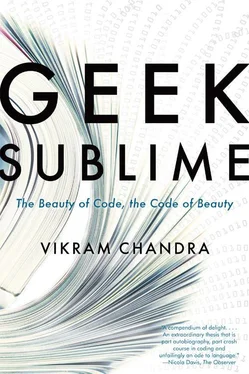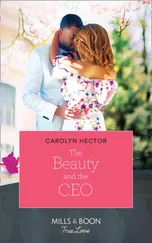And the poet Robert Hass once said, “It’s hell writing, but it’s hell not writing. The only tolerable state is just having written.” 15That writing is hell is a well-established commonplace among writers. In a series of published letters titled Writing Is My Life , Thomas Wolfe wrote:
I am back at work now. It is going to be another very long hard pull. I am already beginning to be haunted by nightmares at night. I am probably in for several thousand hours of hell and anguish, of almost losing hope, utterly, and swearing I’ll never write another word and so on, but it seems to have to be done in this way, and I have never found any way of avoiding it … Sometimes I am appalled by my own undertaking, and doubt that I can do it. 16
And of the not-writing, Wolfe said:
I would say that almost the worst time in a writer’s life are those periods between work — periods when he is too exhausted and feels too empty to attempt a new piece of work, or when a new piece of work is still cloudily formulating itself in his mind. It is really hell, or worse than hell, because writing itself is hell, and this period of waiting is limbo — floating around in the cloudy upper geographies of hell trying to get attached to something. 17
Most certainly there are writers in the world (Bradbury, Borowski?) who smile while they work, who create fiction and poetry in an ecstatic flow. I’ve never met a single one. Mostly, as far as I can tell, writing is not pleasurable. An interviewer once asked William Styron, “Do you enjoy writing?” and the great man said, “I certainly don’t. I get a fine warm feeling when I’m doing well, but that pleasure is pretty much negated by the pain of getting started every day. Let’s face it, writing is hell.” 18
Georges Simenon was of the opinion that “writing is not a profession but a vocation of unhappiness. I don’t think an artist can ever be happy.” 19Anthony Burgess was asked if he thought that Simenon was right, and he answered:
My eight-year-old son said the other day: “Dad, why don’t you write for fun ?” Even he divined that the process as I practise it is prone to irritability and despair … The anxiety involved is intolerable … The financial rewards just don’t make up for the expenditure of energy, the damage to health caused by stimulants and narcotics, the fear that one’s work isn’t good enough. I think, if I had enough money, I’d give up writing tomorrow. 20
Here’s Abe Kobo on the subject: “The most enjoyable time is when I suddenly get the idea for my work. But when I start writing it is very, very painful … To write or commit suicide. Which will it be?” 21Joan Acocella: “Writing is a nerve-flaying job … Clichés come to mind much more than anything fresh or exact. To hack one’s way past them requires a huge, bleeding effort.” 22Norman Mailer: “I think nobody knows how much damage a book does to you except another writer. It’s hell writing a novel; you really poison your body doing it … it is self-destruction, it’s quiet self-destruction, civilized self-destruction.” 23
Malcolm Cowley referred to the writing-is-hell whiners as “bleeders,” and thought that their suffering stemmed from their slow, overly self-critical method: “[They] write one sentence at a time, and can’t write it until the sentence before has been revised.” 24This is an attractive hypothesis, but it rather breaks down in the case of writers like Wolfe, who “habitually wrote for long hours, wrote rapidly, and turned huge manuscripts over to his publishers.” 25
I’m a slow writer, but I’m quite content to leave sentences unrevised until the second or third draft, and I know quite well that my first draft will lack architectural coherence and shapeliness. And yet as I write, something grates and scrapes in my chest. I’m never quite in hell, but in a low-level purgatory that I’ve put myself in.
There is the effort of shaping the words, of fighting through the thickets of cliché, as Joan Acocella noted. And there is often that self-doubt alluded to by Cowley. Effort and self-doubt are certainly present in other areas of my life — programming, for instance — but I am never ever in this particular agony except when I write.
“It must be lonely being a writer,” people have said to me. But I like being alone, at least for a goodly sized portion of every day. And working by myself on other things — programming, for instance — is never painful. There is something else altogether that is peculiar to the process of fiction writing, a grinding discomfort that emerges from the act itself: it feels, to me, like a split in the self, a fracture that leaves raw edges exposed.
The premodern Indian tradition investigates the reception of literature thoroughly but remains strangely silent about the actual workings of the creative process. Abhinavagupta, for example, writes that “The poet’s genius [ pratibhā ] is not inferred by the audience, but shines forth with immediacy because of his inspiration with rasa … Genius is an intelligence capable of creating new things.” 26 Pratibha is imagination, insight, and seems to be spontaneously creative, playful, an overflow of the interaction between self-luminosity and self-awareness; it flows forth, aided by craft and learning. The Indian aesthetic theorists were “philosophers who dealt with the philosophy of awareness and the philosophy of language,” but they seem to have not been very interested in biographies of literary effort and failure. 27The only reference to the costs of poetic effort I’ve come across is from Rajashekara, who insists that “When the poet after the intense activity of poetic composition wishes for relaxation, the inmates of his family and his followers should not speak without his desire.” 28Which makes me believe that Rajashekhara and Avantisundari got a bit cranky by the end of the poetry-writing quarter of their day.
But the Indian phenomenology of literary pleasure perhaps provides a way to think about literary effort: making a narrative come to life within you requires that you bring alive your own samskaras and vasana s, make active all those latent impressions that lie submerged within the layers of your consciousness. This is why stories are not only constructed, but formed, found. They emerge through an alchemical process that requires significant concentration, samadhi. The writer experiences these stories as events happening within himself.
“The poet is, indeed, comparable to the spectator,” Abhinavagupta says. “The origin of the rasa that emerges within the reader is the generalized consciousness of the poet … the rasa which lies within the poet.” 29The implication here is that in the moment of creation, the poet must be both creator (the one who is producing or constructing the aestheticized object) and the audience (the subject that is experiencing the generalized consciousness thus produced). That is, you must simultaneously be in multiple cognitive modes: to produce any semblance of rasa you must remove your ego-self or I-self from the narrative that is forming within yourself, you must allow sadharanikarana or generalization to occur. And yet, the ego-self cannot be allowed to slip effortlessly into the continuous dream of the narrative, it must stay alert and conscious of the very language it is deploying to construct the story — the story, that living, moving thing which is a part of itself, is another aspect of the self. Experientially, this results in a hypersensitive self-awareness, the very opposite of flow; the writer’s ego-self knows at every moment the abrading of generalization and the terror of its own ephemerality. It is a slow, continuous suicide, a “civilized self-destruction.”
Читать дальше












